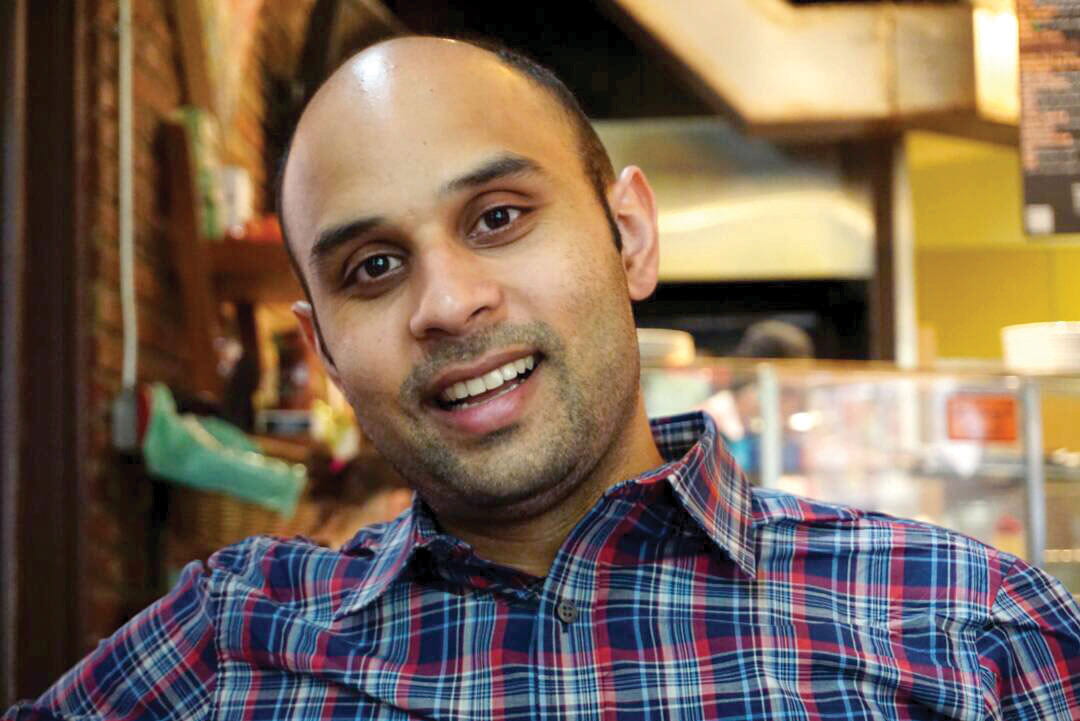Priority
Creating Opportunity
The talented students in Penn Arts & Sciences’ doctoral programs represent the next generation of scholars, teachers, and leaders of colleges and universities, as well as the cutting-edge experts of the future in a wide range of endeavors.
As academic innovators and risk-takers who ask new questions and employ new tools and methodologies, graduate students add fresh intellectual stimulation to the Penn community and invigorate our faculty—and top faculty consistently confirm that access to top graduate students is a key reason for them to come to Penn. Through the strength of their academic contributions, graduate students are partners in sustaining Penn’s reputation as a world-class research university.
As graduate students train to become teachers themselves, they play a crucial role in undergraduate education.

Erynn Johnson, a Ph.D. candidate in earth and environmental science, uses new tools to examine an ancient question — how did predation affect the evolution of Mesozoic Era snails? Johnson employs mathematical models and 3D printing to study changing shell shapes in the fossil record, research that can help determine the impact of human predation today. Johnson sees 3D printing as an outreach tool. She explains, “Now, you can physically hold the object, whether it’s a shell or a dinosaur bone. It’s opened up a whole new opportunity for this field, for us to be able to share information.”

Nicole Welk-Joerger, a Ph.D. candidate in history and sociology of science, was awarded the 2017 Penn Prize for Excellence in Teaching by Graduate Students, given by the Vice Provost for Education. Her teaching complements her research about relationships between humans and animals and how these relationships have changed understandings of biology, technology, nutrition, and the environment.
“I chose Penn because I consider it the best place to do research in macroeconomics. I knew that at Penn, I would receive the best preparation and training. My fellowship allowed me to work full time on my research and that made me better prepared from the job market.”

Sudev J. Sheth, GR’18, led a digital humanities project that demonstrates the value of computational tools for creating and analyzing unconventional datasets. The project, Python in the Archives: Computational Data Mining and Visualization of Historical Records from Mughal India, involved a College undergraduate and faculty across the University. Sheth’s project demonstrates how the innovative, interdisciplinary perspectives that graduate students bring to their work enriches the intellectual environment for undergraduates and faculty alike. His project was funded through the Price Lab for Digital Humanities.
Support
Giving Opportunties
At Penn Arts & Sciences, we focus on recruiting small cohorts of the very best graduate students. Frequently, we must compete for these students with peers who enjoy more substantial endowment resources. To continue to attract the very best students, it is imperative that we offer competitive packages of support in the form of graduate fellowships. Graduate fellowships provide the resources necessary for our students to focus on their work, and demonstrate our commitment to providing an intellectual home for them at Penn Arts & Sciences.
The giving opportunities described below make it possible for Penn Arts & Sciences to recruit the most talented graduate students, sustaining Penn’s reputation for excellence and ensuring that our campus continues to be a place of academic invention.
Endow a graduate fellowship with a gift of $700,000
Endow a dissertation fellowship with a gift of $350,000
Dissertation fellowships are competitively awarded to doctoral candidates in order to support travel, research, and writing as they prepare their dissertations. The availability of this funding ensures that students can undertake fieldwork, primary research in far-flung locations, and experimental work, and to attend and present at academic conferences — experiences that are essential to their development as scholars.
Fund a research/conference fellowship with a gift of $100,000
A research/conference fellowship ensures graduate students are able to travel for conferences as well as research opportunities as they begin their careers in academia.
“Graduate students in Penn Arts & Sciences are the ones who will advance human knowledge in the next generation. Their presence enriches intellectual life on campus, inspiring both undergraduates and faculty alike.”
Contact
To learn more about supporting graduate education at Penn Arts & Sciences, please contact Deb Rhebergen, Vice Dean for Advancement, at drheberg@sas.upenn.edu.
